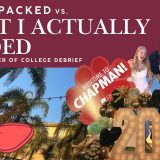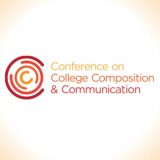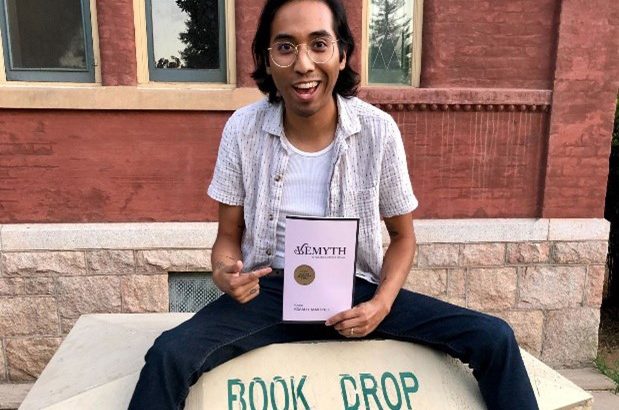
Alum Adam Daniel Martinez on Remyth: A Postmodernist Ritual
September 27, 2021
Adam Daniel Martinez (MA English/MFA Creative Writing ‘14) recently published a collection of poetry, Remyth: A Postmodernist Ritual. A first-generation Chicano college student, Martinez co-founded Pour Vida, a digital literary zine, while a student in Wilkinson College of Arts, Humanities, and Social Sciences. Martinez has written and performed music for over 15 years and currently does so as Adam et al. He also enjoys sharing his love for words with his students as an English professor at Chaffey College.
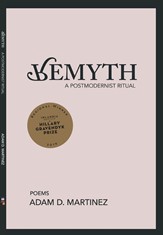 The Voice of Wilkinson had the opportunity to speak to Martinez about his debut work.
The Voice of Wilkinson had the opportunity to speak to Martinez about his debut work.
Voice of Wilkinson: Adam, you write, “Remyth is a concept that is indebted to remix culture… the spirit of this book is a ritual in form and content, aiming to make sense of a life filled with social media, distrust, anxiety, depression, pop culture, and longing for the feelings that relics of the past can create…” Can you tell us a little more about the title, and how remix culture influenced your approach to both the poems within and maybe the collection?
Adam Daniel Martinez: Remyth is a portmanteau of “remix” and “myth”. Being from a Hip-Hop background, the idea of sampling and re-purposing is embedded in my ethos. For artists, this is an age-old philosophy of “borrowing” vs. “stealing”, but for many artists of color and artists of lower socioeconomic backgrounds, remixing and re-purposing are often a necessity. Aside from this, remythologizing is a reflection of the now that we all live. We build our identities and profiles based on our pop culture likes and dislikes. A lot of times, the movies or songs we love get tied so deeply to thoughts of specific relationships in our lives. They can trigger psychic and corporeal responses for better or worse. A way to reconcile that is to ‘remyth’. Many of these poems are indebted to the art of sampling and remixing; there are allusions and lines from pop cultural relics that range from a myriad genres and mediums that collectively create a new rhythm to memories and are in a conversation that shows the way I feel about the moments I’ve written about in this collection.
VoW: If someone asks about my favorite kind of poetry, or favorite music, my brain makes a sort of catalog. I define myself in these aspects with a type of remix—never a single, simple answer. Our own Dr. Anna Leahy (English) wrote in her blurb that your book, “challenges what we mean by the self and the singular I,” what are your thoughts on the human experience of forging that “singular I” from often many multiplicities?
ADM: This collection was me trying to come to terms with the multiplicity of selves within me.
“I’ve spent a great deal of my adult life trying to compartmentalize all of the I’s that exist within me. I’ve tried to fit my rapper persona in its own box, my educator persona in another, my poetic self elsewhere, and so on… “
That becomes so spiritually tiresome. I hope and believe that culturally, we’re headed in a direction that allows us to honor all of the I’s that we are cognizant of at any given moment. I’m sure there are more I’s in me that have yet to make themselves known. There have been I’s that have made themselves known since writing this book. For instance, I recently became a husband, and so that’s a new ‘I’ that I’m learning to integrate into that singular Adam. This is a much bigger conversation when we take our gender, socioeconomic and race/ethnicity into account. It becomes larger than the things we do and it allows us to do the things we do like no one else can.
VoW: Your collection employs different poetic styles (prose, rhizomes, futurist, and free verse) to highlight the psychic and corporeal effects of being a multicultural 20-something navigating identity post-heartbreak and in the nascent stages of coming to terms with childhood traumas. What are your thoughts on combining (or rather, remixing) different writing styles and forms in working towards the collection’s messages? Why do you think the different poetic styles are especially effective?
ADM: It goes back to this idea of the singular I vs the multiplicitous I…. I wrote the whole manuscript during my time in the dual MA/MFA program, so I pulled on 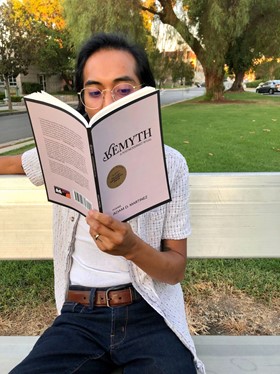 ideas and forms I was studying in real time. I was learning about Lit Theory, new poetic forms I’d never heard of, and I was reading authors that I’d never read. When I combined all of that with the pop culture, punk and Hip-Hop that I was already entrenched in, it became this vast leap-into-the-chasm experience. I think those different styles are effective because it’s a form v content thing. I was learning to not be ashamed of being Chicano. I was learning not to be afraid of what people would think about me being a rapper, a guitarist in a punk band, a poet, and an academic all at once. That might not seem major, but a decade ago it felt novel in the spaces I occupied; it was something that weighed on my confidence. I let all of those Me’s talk in this collection in whichever form felt right rhythmically in the moment. It’s like a DJ mixing a live set and playing off the crowd’s energy—The ‘I’ writing was the DJ and the other ‘I’s’ were the crowd.
ideas and forms I was studying in real time. I was learning about Lit Theory, new poetic forms I’d never heard of, and I was reading authors that I’d never read. When I combined all of that with the pop culture, punk and Hip-Hop that I was already entrenched in, it became this vast leap-into-the-chasm experience. I think those different styles are effective because it’s a form v content thing. I was learning to not be ashamed of being Chicano. I was learning not to be afraid of what people would think about me being a rapper, a guitarist in a punk band, a poet, and an academic all at once. That might not seem major, but a decade ago it felt novel in the spaces I occupied; it was something that weighed on my confidence. I let all of those Me’s talk in this collection in whichever form felt right rhythmically in the moment. It’s like a DJ mixing a live set and playing off the crowd’s energy—The ‘I’ writing was the DJ and the other ‘I’s’ were the crowd.
VoW: Poet, writer, music writer and performer, zine editor, English professor… I think a “love of words” is an understatement! Can you tell us about a life surrounded by language, of words, and how you make time to channel those different energies, or focus on a single project (like a book) when that same creative and critical energy is going in multiple directions at once?
ADM: I can’t argue with that—it’s definitely more of an obsession! I’m still learning the answer to this one. Juggling all these energies is very intuitive for me at this point in my life. Therapy and being at home so much due to the pandemic allowed me to understand that I need to honor and tend to all the Me’s. I’m less afraid to come from an authentic space and set boundaries for myself and for work. I work with wonderful colleagues that understand I’m not going to be able to serve my community well if I’m not caring for myself and the parts of me that make me uniquely “Professor Martinez”—deep down, I believe these other elements I offer in my academic community are why I was hired to begin with.
I make it a point to follow my heart before/after business hours and on weekends. If the music-maker in me is tugging, I make the time and space whether that’s an hour or a whole evening; whether that’s writing a song, recording, promoting, or playing a show. If the poet in me is calling—same thing. I visualize my Self as a garden with lots of fertile soil. Each idea is a seed. It doesn’t matter if it’s a line in a song, a stanza in a poem, or the less-fun marketing element of making art. I have to toil in the garden to see the progress little by little. I have faith that a leaf will sprout, and then a whole plant. It just has to feel good to my soul whether I’m watering, or weeding and pruning (that’s the stuff that’s less about creation and more about getting the message out–emails, brand and website upkeep, plotting campaigns and roll-outs). I have to be intuit when it’s time to bring sharp focus to a project and know what’s meant for me to continue work on will be there once I’m finished with what I’m currently focused on.
For our incoming students to the graduate programs in English, what did you wish you had known starting your MA/MFA? What’s something you appreciated about the program? Is there a takeaway that still serves you in your day-to-day endeavors?
“My main takeaway was to dive right in.”
ADM: I liked the mystery. The kind of timid person I was, I needed that to break through and not overthink too much. I guess the only thing I could say is knowing whether I would pursue an MA, MFA, or dual degree from the start. But the transition from MA to the dual degree was a breeze.
I appreciate the connections I’ve made, the courses I took—nearly all of them have impacted me as an artist and an educator. I appreciate that I was able to write about my experiences and even when students didn’t get it, there were professors that did. I appreciated that I was able to write essays about Hip-Hop and was taken seriously. I also enjoyed the opportunities to go to readings via the Fowles Center, be a part of the Orange HS Creative Writing Workshop I had access to my professors quite often. I can only imagine there are even more opportunities and community-building occurring now. This article is a testament to that. I did a lot of experimenting and tried a lot of new things in the program, and I came out a better scholar, writer, and human.
